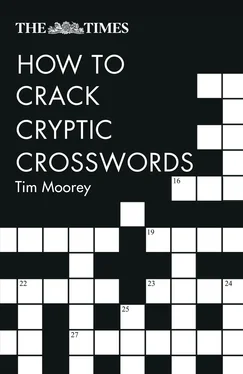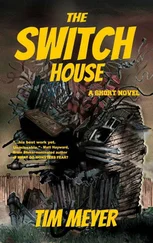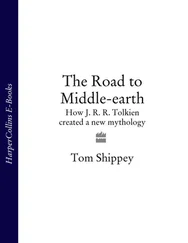What about Jumbo crosswords?
No examples of these puzzles are included on the grounds of space but the clueing and solving principles and practice described are just as relevant to their solvers.
What’s the book’s focus?
It’s firmly on the solver. The teaching sections have been written after consulting a large number of solver friends, colleagues, acquaintances and workshop students, much of whose experience and techniques are incorporated. To this end, a setter’s blog in the previous book is replaced by practice puzzles.
Are there rules for solving?
No, and I certainly would not wish to be seen as laying rules down. Everyone finds their own way of doing crosswords and my hope is that I help you to find yours. Also I invite you to adopt or reject the tips according to whether they suit you.
One thing I will point out, albeit hesitantly, is that on my workshops, female students tend to be ‘instinctive’ solvers (initial guess and work out why afterwards) whereas male students tend to be more ‘analytical’ in their initial solving. But that’s naturally not always the case: the key point is that it doesn’t matter which type you are.
How to reinforce the teaching?
I follow the well-established teaching principle that adults learn best by doing, rather than reading or being talked at. So I have included lots of practice clues and puzzles, with detailed explanatory notes setting out the solutions to every practice clue and puzzle. They should leave you in no doubt about why the solutions are what they are, a common frustration for solvers. Finally, a full index is designed to encourage the book’s continual use, rather than a book that you read once and then donate to a charity shop.
The practice clues in Chapter 3come from a variety of sources and many are to savour, as they have been selected as ‘The Clue of The Week’, a feature of The Week magazine for the past 20 years.
Why do people shy away from cryptics?
There are many fears and misapprehensions about the cryptic crossword, usually displayed at the start of my workshops. It is commonly thought that:
you require a good knowledge of rare words, literature and the classics;
clues lead to more than one answer;
the cryptic is always harder than the Quick, non-cryptic puzzle
there are no rules;
you need to have ‘that sort of mind’.
I hope by the end of this book to have dispelled, partly or wholly, all of these myths.
What sort of knowledge is needed?
On my workshops I’ve discovered that any moderately well-educated person with a love of language and problem-solving, and average general knowledge can complete a cryptic crossword. On these points, Richard Browne, a former Times crossword editor, has explained:
‘Thirty years ago setters could confidently expect that most solvers would have a reasonable acquaintance with the principal plays of Shakespeare, the main characters and events in the Bible, probably a bit of Milton, a few lyric verses, Dickens perhaps, certainly Sherlock Holmes and some staples of the Victorian nursery such as Lear and Lewis Carroll, and you could confidently clue a word just with a reference. That doesn’t work any more, partly because the world has widened up so much.
‘We have lots of people in this country now from different backgrounds – India, Africa, America, whatever – who have a different system of education, and of course we have people logging on worldwide to Times Online, doing the crossword. So it’s a larger and more varied audience – you’re no longer talking exclusively to the public-school, Oxbridge types who were the core of your readership 50 or 60 years ago.’
Importantly, these comments apply to most cryptics published today.
Finally, why do crosswords?
‘I always do the crossword first thing in the morning, to see if I’ve enough marbles left to make it worth my while getting up.’
Letter to The Times from an elderly reader
There is indeed scientific evidence that tackling a crossword can be good for you. Medical research continues to support the notion that mental exercise from activities such as crosswords is beneficial, especially in later life, and stimulates the brain. A New York neurologist, Doctor Joe Verghese, conducted research in this area for over 21 years and found that those who kept their minds nimble were 75 per cent less likely to develop dementia or Alzheimer’s disease.
‘Do something that is mentally challenging to you,’ he has said. ‘It seems that remaining mentally agile makes the brain more healthy and more likely to resist illness, just as physical exercise can protect the body from disease.’
In addition, are crosswords educational? I say yes, in the sense that they undoubtedly can improve your vocabulary and general knowledge.
Incidentally, you can check the number of words in your vocabulary via www.testyourvocab.com, against the average native English speaker’s 27,000 words. Maybe one plan is for you to check your score again after you have mastered this book!
It’s now time to get stuck into some basics, in which I assume no previous knowledge whatever.
A CLUE-A-DAY
Some Indian states have a daily cryptic clue-solving contest for children – see www.crypticsingh.com/acad
PART 1
CROSSWORD BASICS
1: Terminology
“She had another look at The Times Crossword. The clues might as well have been written in a foreign language.”
Simon Brett, The Stabbing in the Stables
The first three chapters of Part 1 establish the terms used throughout. They are essential reading for beginners, and perhaps also for some seasoned solvers who may have become used to different terminology.
What is a cryptic clue?
A cryptic clue is a sentence or phrase, involving a degree of deception, making sense and frequently conjuring an image, or triggering thoughts, in its surface reading; but when read in another way can be decoded using a limited number of well-established techniques to give a solution. Thus “cryptic” is used in its meaning of hidden or misleading.
These are the other terms we shall use:
Answers to clues, running across and down are entered into a grid, popularly a diagram, which has across and down empty squares to be filled.
The grids in the case of the puzzles we are considering here contain black square blocks, hence they are seen in blocked puzzles.
The other main type not being considered here has a grid with bars rather than blocks, hence the term barred puzzles.
Clue answers are variously called solutions, entries and indeed answers.
Where a solution letter, or letters, is able to be confirmed by intersecting entries, they are checked letters. Unchecked letters (unches in the trade) are therefore the opposite: the solver has no second way of confirming them.
The sense conveyed by the initial reading of a clue is the surface meaning.
The person responsible for the crossword is a setter; more commonly, but in a term less attractive to most crossword professionals, a compiler.
The term constructor, which suits puzzles with difficult-to-build grids, is used in North America.
The number of letters in a clue solution, always shown at the end of the clue, is termed the enumeration.
Other terms associated with clues such as wordplay, anagram, indicator and anagram fodder are explained as we meet them.
For completeness, there is a rarely used crossword term – light– whose meaning has fluctuated somewhat from the early days of crosswords but is defined by the Collins English Dictionary today as the solution to a clue.
ARE CRYPTICS EXCLUSIVELY BRITISH?
Читать дальше












